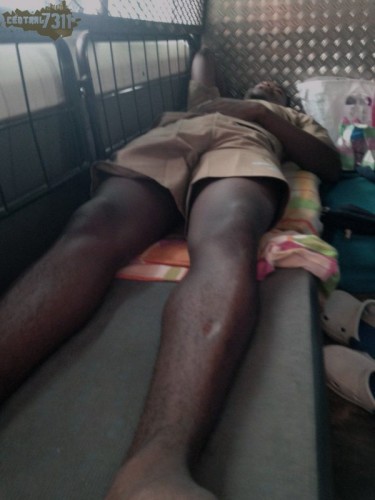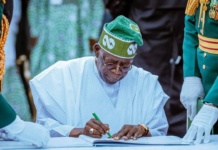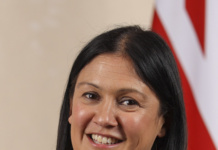Portugal is attracting criticism by failing to condemn the long prison terms handed to the so-called Luanda book club, seventeen dissidents convicted of political defiance against the government of Angola.

Angola’s president, José Eduardo dos Santos has previously warned the former colonial power against “interfering” in Angolan justice, but campaigners attacked the blocking of a motion in Lisbon to repudiate the verdicts as “complicity in the ongoing looting” of the country by the government.
The jailed men include rapper Luaty Beirão, political writer Domingos da Cruz and T-shirt seller Nito Alves, who were members of a group, which included two women, arrested for holding a meeting at which they discussed books, including one by the US author Dr Gene Sharp on non-violent protest entitled From Dictatorship to Democracy.
After a lengthy remand, during which several of the activists went on hunger strike, all seventeen were handed jail terms ranging from two to eight-and-a-half years and given hefty fines.
Beirão was given five-and-a-half years for “falsifying documents” and Da Cruz was given the longest sentence “for leading the criminal association”. Another activist, Francisco Mapanda, was later sentenced to eight months for contempt of court after shouting “this judgment is a joke” in the courtroom.
Both the prosecution and defence lawyers have said they will appeal against the sentences. There is particular concern about the state of health of Alves and Prof Nuno Dala, who has been on hunger strike for 19 days.
Sharp’s thinktank, The Albert Einstein Institution, has strongly condemned the men’s trial, as has the Human Rights Foundation in New York, which called on the Angolan government “to vacate the convictions and release the activists immediately.”
Amnesty International has adopted all 17 as prisoners of conscience, and has called for their immediate release, calling the trial a “mockery of justice”. Its director for southern Africa, Deprose Muchena, said: “The activists have been wrongly convicted in a deeply politicised trial. They are the victims of a government determined to intimidate anyone who dares to question its repressive policies.
“This unjustifiable conviction and draconian sentences against these peaceful activists who should never have been detained at all demonstrate how Angolan authorities use the criminal justice system to silence dissenting views.
“They should not have spent a single day in prison.”
There were demonstrations in Lisbon last week in support of the activists. Many protested against the “reverse colonisation” of Angolan tycoons, who have been investing in Portugal’s cash-strapped news and telecommunications industries. Further protests are planned to coincide with demonstrations in Luanda, where the convictions have caused deep anger, especially amongst young Angolans, who increasingly use rap music to highlight the climate of fear in the country.
“Despite the state’s efforts to withdraw sponsorships and subsidies from pro-people hip-hop artists, they continue to use the internet, flash disks, blank CDs, taxi operators and street vendors to distribute their message,” the political writer Rafael Marques de Morais said.
Index on Censorship, which gave an award to De Morais last year, said the case was absurd.
“The Angolan authorities always proclaimed to have caught this group ‘red-handed’ in their crime. That crime was reading a book. Evidence was so scant of the alleged coup-plotting that those charges had to be dropped.
“It is absurd and tragic that these young men have been convicted of rebellion and must now see out jail terms,” said Vicky Baker, the deputy editor of the magazine, adding: “This has been another sham trial, similar to the one we saw last year with Rafael, who was convicted of defamation after writing a brave and much-needed exposé of the country’s blood diamond industry.”
Sunday marks the 14th anniversary of the end of Angola’s 26-year civil war, which began after the country’s independence from Portugal. Dos Santos, 73, has been president since 1979 and has been accused of presiding over one of the world’s most corrupt governments, amassing a great fortune for himself, his family and friends, while two-thirds of his country lives below the poverty line.
The president is worth an estimated $20bn (£14bn) and the wealth disparity in Angola is one of the worst in the world.
The jailed activists insist they are peaceful campaigners lobbying for Dos Santos to step down. He said earlier this month he would retire in 2018, but has broken other pledges in the past.








